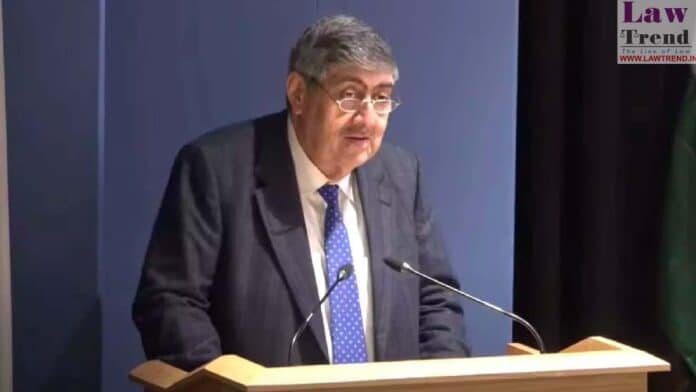The use of technology in providing legal aid and ensuring access to justice to the needy citizenry will be the defining factor in the next few decades, Supreme Court judge Justice S K Kaul said on Tuesday.
Addressing the valedictory session of the two-day-long first “Regional Conference on Access to Legal Aid: Strengthening Access to Justice in the Global South” organised by the National Legal Services Authority (NALSA) here, Justice Kaul also said the most “noteworthy” use of technology was the advent of virtual courts or e-courts during the COVID-19 pandemic.
Justice Kaul, who is also the executive chairperson of NALSA, said, “When we think of innovating to increase legal access, I believe that the use of technology in legal aid and access to justice will be the defining factor in the next few decades.”
“We in India have been trying to make use of technology in the judicial setup. The most noteworthy use of it has been the advent of virtual courts or e-courts when the COVID-19 pandemic brought the entire world to a standstill,” Justice Kaul added.
He said that the NALSA has developed an e-Prisons’ platform for the digitisation of prison management, which ensured applications for remissions and bail were processed swiftly and it also sent automatic prompts in a case where an undertrial was not released within seven days from the bail order.
The NALSA also released guidelines that provide a framework for the rendering of legal assistance at an early stage, he said.
Justice Kaul said according to estimates, two-thirds of the world’s total population lacked effective access to justice, and with the “global south” being home to a majority of the disadvantaged classes, access to justice became a grave issue, warranting immediate attention.
“I would like to conclude with a fervent hope that we will reach a collective stage where justice does not remain a luxury for even a single person in the world,” he said.
In his address, Supreme Court Judge Justice Sanjiv Khanna said in the ministerial roundtable, a vision was articulated where the rule of law is just not a legal doctrine, but an essential underpinning of economic activity and shared economic growth.
“Central to the deliberations has been the recognition that access to justice is not merely a component but a linchpin to achieving sustainable Development Goals (SDGs),” he said.
Justice Khanna said the importance of harnessing technology and empirical evidence for policy formation to track progress and address gaps in the justice system was underscored in the conference.
The sessions also underlined the need for the shift to a “people-centric justice system, a system that places individuals at the forefront,” he said.
Justice Khanna said that sessions saw many examples from around the world being shared, “providing a fantastic opportunity for us to emulate these practices in the local contexts”.
“It is also important to measure the quality of legal aid representation meted out in our legal jurisdictions,” he said, adding, “In assessing these services, systemic reforms are to be supplemented with training and investment, the need and efficacy of which can be understood with timely and data-driven quality evaluation and monitoring.
He said many countries had developed mechanisms to facilitate better services for specific categories of people and also decriminalised laws to reduce the over-representation of women and other marginalised communities in prison.
“Other marginalised committees such as indigenous groups and those affected by loss of land greatly benefit from legal aid. The right to land and housing is directly related, related to the fundamental right to life as well as the preservation of natural resources and environmental justice on the whole,” Justice Khanna said.
Also Read
He said specialised forums and schemes were required for vulnerable populations so that they could effectively claim their rights.
To ensure effective policy implementation, it is imperative that “we adopt objective parameters and employ rigorous analysis methods”, Justice Khanna said, adding that utilising key performance indicators serves as a tangible method to measure the success of policy initiatives.
“Indicators, such as the percentage increase in the access to legal aid services or reduction and disparities across different demographic groups offer quantifiable metrics for evaluation,” he said.
President Droupadi Murmu, Chief Justice of India D Y Chandrachud, and Law Minister Arjun Ram Meghwal also spoke at the valedictory session of the conference.




